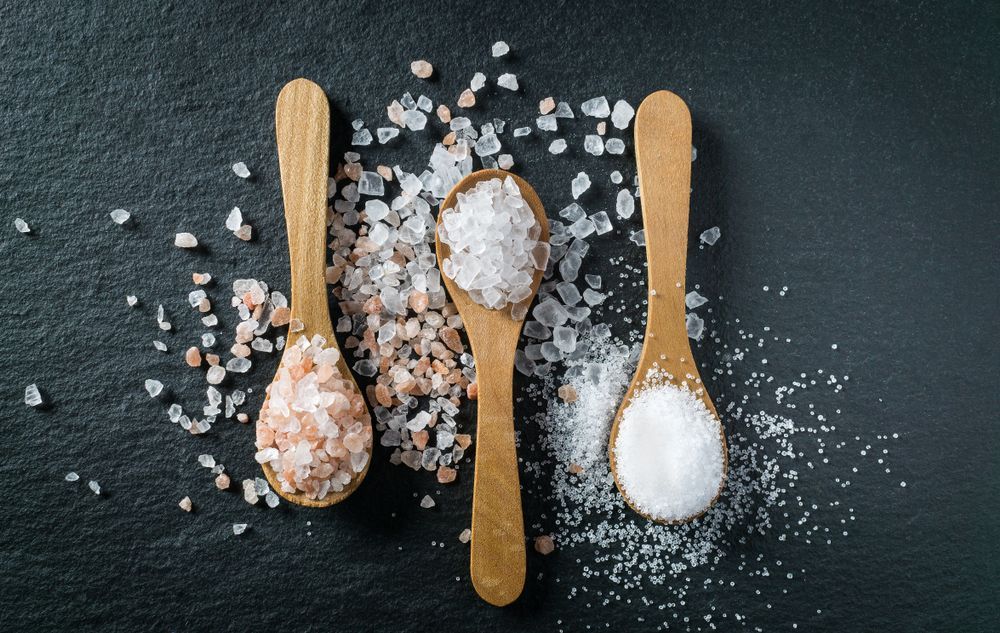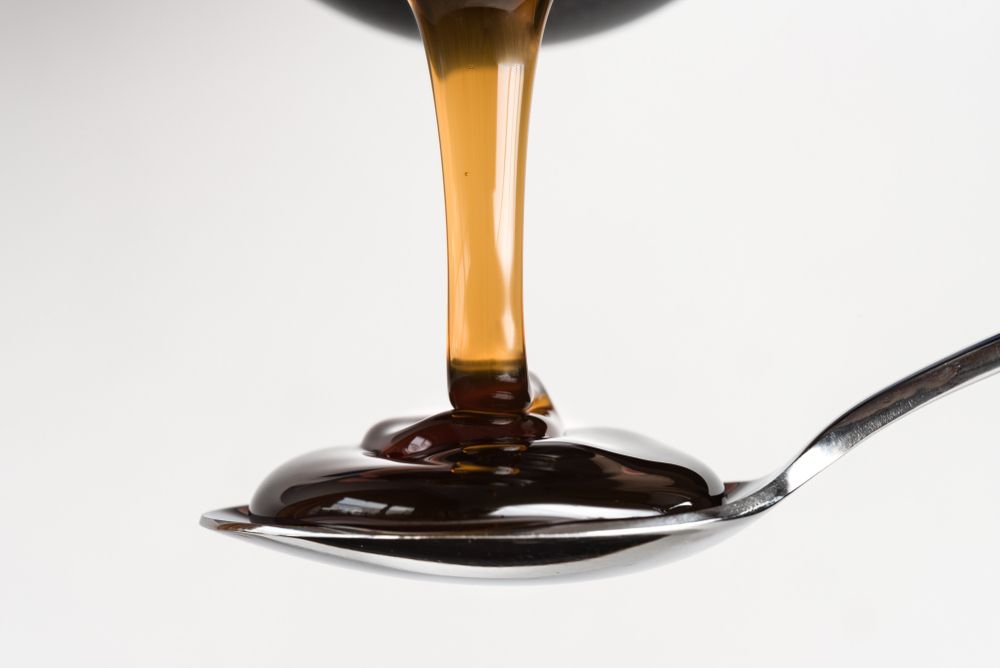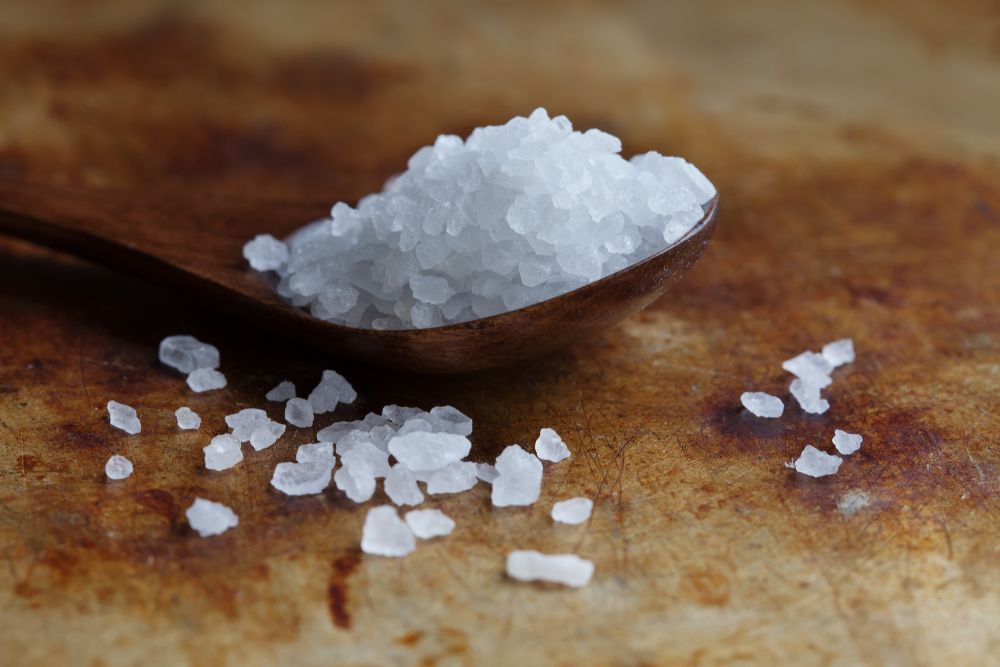How to Start a Bakery Business from Home
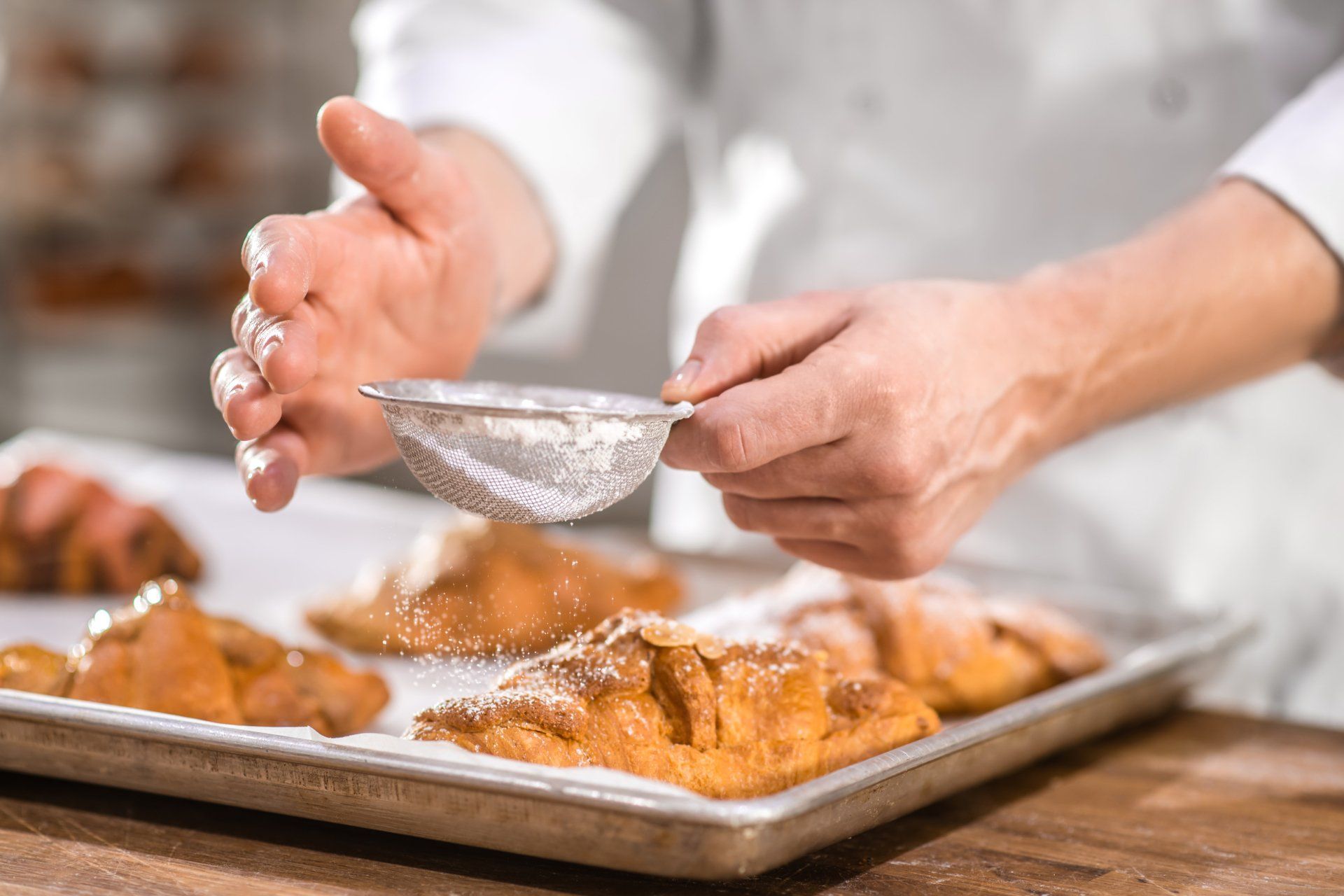
Common Types of Sugars for Baking
Not all sugars are created equal. Sure, they all serve the same primary purpose of providing sweetness, but different types of sugars can all impact the taste, color, and texture of your final product. Make sure you learn about different types of sugars, since substituting one sugar for another isn't always a 1 for 1 deal. Different sugars will have different melting points, solubility, sweetness, and texture, so you may have to compensate or alter a recipe depending on your intended result for a baked good. We will review a few popular types of sugars for baking to get you started.
Granulated Sugar
The most well known type of sugar, granulated sugar has been a familiar favorite for years. Every bakery will certainly be stocked to the brim with reliable multi-purpose granulated sugar. Granulated sugar comes from both sugar cane and sugar beets, not to be confused with cane sugar, which strictly comes from sugar cane. Alternatively, you may also find caster sugar useful, since this superfine granulated sugar will dissolve quicker.
Powdered Sugar
Powdered sugar, also called confectioners sugar or 10x sugar, is just your standard white sugar ground up into a powder. Powdered sugar is ideal for decorating or making frostings. It is a staple product for any baker wanting to improve the appearance of their desserts.
Brown Sugar
Brown sugar gets its deeper color from the addition of molasses. Brown sugar typically comes in light or dark variations, depending on how much molasses is added. As a result, brown sugar has a wetter, sandier texture than granulated sugar. It is often used in savory dishes in addition to baked goods, making it a versatile ingredient to work with.
Molasses
Unlike some of the other sugars, molasses is a liquid sweetener with a syrupy texture. It comes in several different sweetness levels and can also be found in savory dishes as well, since it's generally less sweet than regular sugar. Still, you'll see molasses pop up in plenty of cookie recipes.
Which Sugar is Best for Baking?
This may seem like a trick question, but there is no simple answer to this question. Depending on the product, you may find granulated sugar works just fine, or you might want to experiment with richer textures or sweeter profiles from sweeteners like molasses or fructose. For your new bakery, start by investing in some of the commonly used sugars above so you can cover many popular recipes. From there you can always move on to more unique sweeteners like turbinado sugar, colored sanding sugars, honey, maple syrups, fructose powder, coconut sugar, and more. This way, you can always be prepared to work on something new or fulfill any unique requests. Buying your products in bulk will end up helping you save money and give you plenty to work with!
Imagine walking into work and being greeted by the warmth of the ovens, the smell of baked goods, and a friendly hello from your employees. If starting your own bakery business sounds like a dream, look no further! This blog will help you get started.
Bakery products comprise over two percent of the United States GDP, equaling just over $300 billion per year. Sales from retail bakeries are also expected to rise like the bread you want to make, increasing by over five percent yearly according to some estimates. As a growing industry in the United States, now is an amazing time to start a bakery business from home. Are you ready to get your piece of this pie? Let’s get started.
Is Owning a Bakery Right for You?
Before deciding to open a bakery, it is important to understand what skills you will need and what approach may work best. If you lack confidence in any of these, consider taking a class or working with someone who has these skills before opening your first bakery.
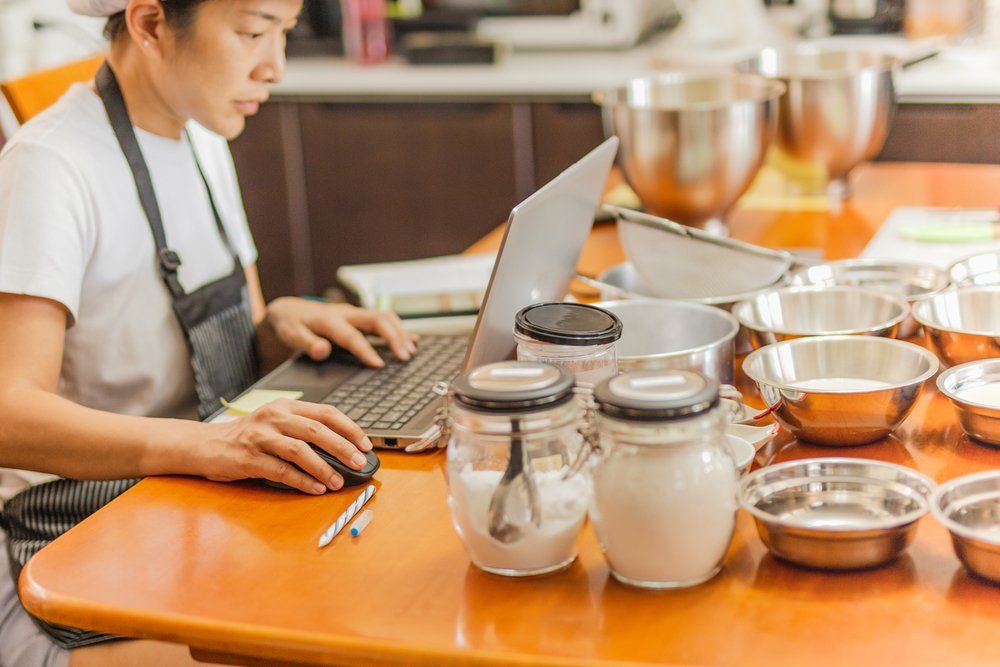
Skills You Will Need
- Strong knowledge of the industry will be key, including what local demand exists for your products.
- Strong soft skills are also a must for talking to customers and find out what they want from your bakery.
- Strong math skills are critical for working out what ingredients you will need and for how much you should sell your products in order to make a profit.
- If you intend to hire employees, people management skills will also be important.
- Marketing skills to get people into the bakery, or the capital to hire someone to do it for you.
- And finally, it will be difficult to open a successful bakery without talent in the art and science of baking
What Type of Bakery Business Should You Start?
Now that you know you want to start a bakery, and you have all the necessary skills to do so, it is time to decide what kind of bakery business you should start. There are several to choose from.
Online
Some of the best bakeries do not require a storefront to be successful in the digital age. You can start online with a killer website, pictures of your work, and an e-commerce platform your customers can use to place an order – all from home.
Counter Service
This may be the style of bakery that comes to mind most readily for you. All you need is a small commercial space for customers to walk in and pick up the baked goods they ordered from you, either online, by phone, or in-store.
Specialty Service
If you plan to offer specialty goods, such as vegan or gluten-free options, a specialty service is most likely a great bakery plan for you. Whether you run your business from your home or rent a space, it is ultimately up to what you want your business model to look like.
Sit Down Bakery
The ambiance and communal style sit down and dine in option is something more owners are attempting to capitalize on.
Once you decide which style of bakery you would like to create, it is time to create your business plan.
Creating Your Bakery Business Plan
There are several steps within this category, all of which will help you create a solid foundation for creating your business.
Identify Your Bakery’s Business’ Unique Selling Points
What sets your bakery apart from others like it? Are you offering any special products? Are you donating proceeds? Do you have a mission? By fully planning your executive summary and company overview first, you will have a framework for structuring the rest of your business that will serve you well.
Look at Who Your Industry Competitors Are
This step is all about analyzing the market, understanding who your competitors are in order to create a niche, and develop the best marketing strategy for your area. See what they’re doing well and what they need to improve on and offer a bakery business that caters to those holes.
Understand Your Customers
What are your customers looking for from your bakery? Can you cater to those desires? By researching and understanding the needs of your future customers, you will be able to tailor your business offerings to match and increase your chances of success.
Get Involved with Local Business Communities and Discussion Groups
The best way to understand your space is to get involved in it, even if your business has not been created yet. The American Society of Baking offers many great online resources for getting started, and several online forums can be found across the web.
Financials and Legal Aspects
Finally, you will want to be sure you address all the legal and financial planning of your business. These will be the most critical final aspect before opening your business, to ensure you are operating legally and productively. Depending on the kind of bakery you chose in step two, you will need to
- Create a management plan and ownership structure
- Acquire loans or startup capital from a funder
- Register your business
- Lease a space
- Obtain all the permits, licenses, and equipment
- Work With Indiana Sugars
When you are ready to start your bakery business,
Indiana Sugars will be here to provide you with high-quality bulk ingredients at the affordable price you need.
Contact our team with any questions you may have and let us know how we can help you. We look forward to hearing from you!

